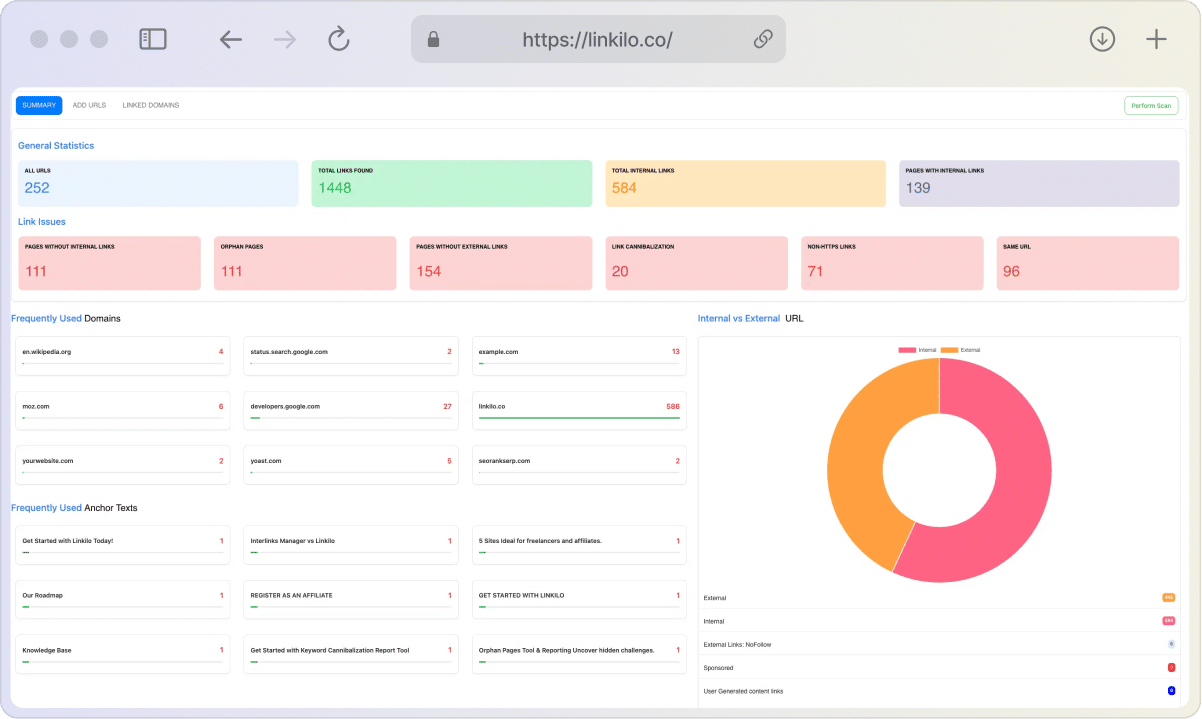As we venture into 2024, content marketing stands at a fascinating intersection of technology, creativity, and consumer interaction. The past few years have witnessed a seismic shift in how content is created, distributed, and consumed. This evolution is driven not just by technological advancements but also by a discerning audience that craves relevance, authenticity, and engagement.
The Evolution of Content Marketing: A Quick Glance Back
Tracing back the steps of content marketing, we observe a journey from simple blog posts and articles to immersive, AI-driven experiences. The era of one-size-fits-all content has long passed, giving way to highly personalized narratives.
Marketers have moved from just storytelling to story-living, where users don’t just read content but experience it. This transformation is underscored by the integration of advanced data analytics, enabling a deeper understanding of consumer preferences and behaviors.
Top 10 Trends in Content Marketing for 2024

As we go into the top 10 trends in content marketing for 2024, we’ll uncover how these trends are reshaping the industry. From the surge in interactive content to the nuanced use of AI and machine learning, each trend reveals a facet of how content marketing is becoming more dynamic and user-centric. This exploration will not only highlight the trends themselves but also their strategic implications for businesses and marketers.
Trend 1: AI-Driven Content Creation
The first significant trend shaping the content marketing landscape in 2024 is the use of artificial intelligence in content creation. AI is no longer just a backend tool for data analysis; it has stepped into the spotlight, revolutionizing how content is crafted. Imagine a world where AI algorithms don’t just analyze user data but use it to create content that is not only relevant but also deeply resonant with each individual reader.
AI algorithms are now adept at understanding context, audience sentiments, and even cultural nuances, making them invaluable in crafting compelling narratives.
AI in 2024 is capable of crafting narratives that are rich, personalized, and engaging. It understands the nuances of human emotions, creating content that speaks directly to the heart of the audience. For instance, a fitness brand uses AI to generate personalized blog posts for its readers, offering workout tips based on their fitness levels, preferences, and past injuries.
But the role of AI doesn’t stop at creation. It extends to personalization at a scale previously unimaginable. Content is no longer a one-size-fits-all solution; it’s a bespoke suit, tailored to fit each consumer perfectly. This hyper-personalization leads to content that not only captures attention but also sustains it, fostering a deeper connection between the brand and its audience.
Trend 2: Interactive and Immersive Content
2024 marks a year where video content not only thrives but dominates. This medium has transcended traditional boundaries, offering brands a canvas for storytelling that is unrivaled in its ability to connect, communicate, and convert.
Video content in 2024 is not just about disseminating information; it’s about creating experiences, evoking emotions, and building narratives that resonate deeply with viewers. From short, snappy social media clips that capture fleeting attention spans to long-form documentaries that go into the heart of a brand’s ethos, video is as versatile as it is powerful.
Interactive content isn’t just about novelty; it offers tangible benefits.
The innovation doesn’t stop at content creation. The way video is distributed and consumed has seen a transformation as well. Platforms like TikTok, YouTube, and Instagram have evolved, offering new features and algorithms that favor engaging, high-quality video content. Brands are not just posting videos; they are strategically leveraging these platforms to reach their target audience, engage with them, and drive them to action.
Moreover, the trend sees an increasing integration of interactive elements in video content. Imagine a tutorial video where you can click on products used and buy them instantly, or a documentary where you can choose which storylines to follow. This level of interactivity not only enhances engagement but also adds a layer of personalization to the viewing experience.
The key to success is storytelling. A well-told story can turn a simple video into a memorable experience, forging a connection between the brand and its audience that goes beyond the screen. As we move through 2024, the brands that understand and leverage the power of video storytelling are the ones that will stand out in the crowded space.
Trend 3: The Evolution of Video Content
Video content continues to reign supreme in the content marketing universe. This section will explore how video has evolved to become the most consumed type of content online. It will highlight the growing preference for video over other content forms, driven by its ability to convey complex messages in an engaging, easily digestible format.
A well-told story can turn a simple video into a memorable experience, forging a connection between the brand and its audience that goes beyond the screen.
This trend will delve into the latest innovations in video production, such as the use of 360-degree videos, live streaming, and interactive video elements. The section will also cover the distribution strategies that maximize the reach and impact of video content, including the use of social media platforms, video SEO, and integration with other marketing channels.
The power of storytelling through video cannot be overstated. This part of the section will focus on how brands are using video to tell compelling stories, create emotional connections with their audience, and convey their brand messages more effectively. It will include examples of successful video campaigns and insights into how storytelling elements are crafted to resonate with viewers.
Trend 4: Social Media’s Expanding Role in Content Marketing
Social media has emerged as a central platform for brand storytelling. No longer just a tool for promotion, it has become a primary medium for engaging narratives and meaningful connections. Brands are now intricately weaving their stories through posts, videos, and interactive features, tapping into the diverse and dynamic nature of these platforms.
Social media platforms have emerged as primary channels for content distribution and integral parts of content marketing strategies.
A pivotal element of social media’s influence in content marketing is the emphasis on user-generated content (UGC). Brands encourage their audiences to share their own stories and experiences, creating a rich tapestry of content that resonates with authenticity. This approach not only fosters community but also deepens the bond between brands and their customers, as users see their voices and stories become part of a brand’s narrative.
Influencers continue to play a crucial role in content marketing strategies. However, the focus has shifted towards influencers who embody authenticity and have a genuine connection with their audience. These influencers work as extensions of the brand, crafting content that seamlessly aligns with the brand’s values and message, thus reaching audiences in a more organic and trusted manner.
Trend 5: The Growing Importance of SEO in Content Marketing
In 2024, the role of Search Engine Optimization (SEO) in content marketing has evolved into a more holistic strategy. It’s no longer just about sprinkling keywords throughout content; it’s about crafting an experience that is both user-friendly and search engine friendly. This approach involves optimizing various elements, including website speed, mobile responsiveness, and content quality, to ensure a top-ranking position on search engines.
Holistic SEO involves optimizing various elements, including website speed, mobile responsiveness, and content quality, to ensure top-ranking positions on search engines
Voice search has become a significant player in SEO strategy. As more people turn to voice assistants for their search queries, brands are adapting their content to be more conversational and question-oriented. Additionally, securing a position in featured snippets – those concise answers shown at the top of search engine results – has become a coveted goal. Brands are crafting their content to directly answer common queries, aiming to be the first source of information users encounter.
For businesses with a physical presence, local SEO remains a key focus. Optimizing for local search involves ensuring that business listings are accurate, incorporating local keywords, and engaging with local communities online. Personalization also plays a critical role, as content tailored to specific locales or communities resonates more deeply with the audience.
Trend 6: Data Analytics in Content Marketing
In 2024, data analytics has become the cornerstone of effective content marketing. Brands now rely heavily on data to guide their content strategies, ensuring each piece of content serves a specific purpose and reaches the intended audience. This data-driven approach allows for more precise targeting, tailored messaging, and ultimately, more successful marketing campaigns.
Brands now rely heavily on data to guide their content strategies, ensuring each piece of content serves a specific purpose and reaches the intended audience.
The evolution of analytics tools has given marketers access to deeper insights than ever before. These tools now offer real-time data analysis, predictive modeling, and comprehensive audience segmentation. Brands are leveraging these capabilities to understand their audience’s preferences, behaviors, and evolving needs, allowing them to create content that is not only relevant but also timely.
Data analytics has taken personalization to new heights. By analyzing user data, brands can create highly personalized content that speaks directly to individual interests, needs, and even emotions. This level of personalization results in content that is more engaging and effective, as it resonates on a personal level with the audience.
With great power comes great responsibility. As data analytics becomes more integral to content marketing, brands must navigate the ethical implications responsibly. This involves being transparent about data collection practices, respecting user privacy, and ensuring the ethical use of data in content creation. Brands that prioritize ethical data practices are more likely to build and maintain trust with their audience.
Trend 7: Podcasts in Content Marketing
In 2024, podcasts have taken center stage in the realm of content marketing, captivating audiences with their immersive and intimate format. These audio narratives offer a unique blend of storytelling and information sharing, proving to be an invaluable asset for brands looking to deepen their connection with their audience.
Imagine tuning into a weekly podcast from your favorite brand, where each episode takes you behind the scenes, shares insights from industry experts, or explores topics that matter to you. This is the power of podcasts – they create a personal space for brands to engage with their audience, building a community of loyal listeners.
Podcasts have taken center stage in content marketing, captivating audiences with their immersive and intimate format.
The key to a successful podcast lies in its storytelling. Unlike other mediums, podcasts create a direct, personal connection with the listener. It’s storytelling in one of its purest forms – just a voice, a story, and the listener’s imagination. Brands are tapping into this power by crafting narratives that are not only informative but also emotionally resonant, making every episode an experience rather than just another piece of content.
Podcasts are not standalone entities in the world of content marketing; they are part of a larger ecosystem. Brands integrate their podcasts with other content channels, creating a multi-dimensional marketing strategy. A podcast episode could lead listeners to a blog post for more in-depth information, or a social media campaign could be used to promote upcoming episodes, creating a web of content that keeps the audience engaged across platforms.
Understanding the impact of podcasts on overall marketing goals is crucial. Metrics such as download numbers, listener engagement, and episode retention rates offer insights into the podcast’s effectiveness. More importantly, feedback from listeners provides direct input on what works and what needs improvement, making it a valuable tool for refining content strategies.
Podcasts in 2024 are more than just a trend; they are a testament to the power of audio storytelling and its ability to create meaningful connections with audiences.
Trend 8: Sustainability and Social Responsibility in Brand Narratives
In 2024, content marketing has evolved to not only focus on products and services but also to embrace broader issues of sustainability and social responsibility. Consumers now seek brands that align with their values, and companies are responding by integrating these themes into their core narratives.
Brands are no longer just sellers; they are storytellers with a conscience. They weave sustainability and social responsibility into their content, showcasing their commitment to making a positive impact on society and the environment. This approach goes beyond mere marketing; it’s about building a brand that stands for something greater than itself.
Brands weave sustainability and social responsibility into their content, showcasing their commitment to making a positive impact.
The most effective content in this realm is deeply authentic and resonates with the audience’s values and aspirations. For instance, a brand might share its journey towards reducing its carbon footprint, the challenges it faced, and the solutions it implemented. These stories are powerful because they are real; they reflect a commitment to change and a willingness to be transparent about the journey.
Such content marketing strategies foster a sense of community among consumers who share similar values. Brands use their platforms not just to sell products but to advocate for change, engage in meaningful conversations, and build a community of like-minded individuals. This approach creates a strong emotional bond between the brand and its audience, transforming customers into advocates for the brand and its cause.
While embracing sustainability and social responsibility, brands also navigate the delicate balance between profit and purpose. The key is to integrate these values into the business model in a way that is sustainable both economically and ethically. Content that highlights this balance not only garners consumer trust but also sets a new standard for what it means to be a responsible business in the modern world.
In 2024, content marketing has become a platform not just for business growth, but also for driving positive social and environmental change, marking a significant shift in how brands connect with their audiences.
Trend 9: Emerging Technologies Elevating Experiential Marketing
In 2024, emerging technologies like Augmented Reality (AR) and Virtual Reality (VR) have revolutionized experiential marketing, blurring the lines between the digital and physical worlds. Brands are harnessing these technologies to create immersive experiences that go far beyond traditional advertising, engaging consumers in a deeply interactive and memorable way.
Picture a virtual reality setup at a tech expo, where visitors can experience a brand’s new product in a simulated environment, or an AR-based app that allows customers to interact with products in real-time from the comfort of their homes. These aren’t just futuristic concepts; they are real, impactful marketing strategies being employed today.
Emerging technologies like AR and VR have revolutionized experiential marketing, blurring the lines between the digital and physical worlds.
The power of these technologies lies in their ability to craft immersive narratives. Whether it’s a VR journey through a brand’s history or an AR game that brings a product to life, these experiences captivate the audience’s imagination, creating a lasting impression. They transform passive viewers into active participants, making the brand experience more impactful and memorable.
Emerging technologies are also bridging the gap between virtual experiences and physical interactions. For example, a furniture brand might use AR to help customers visualize how a piece would look in their home. These technologies are not just about showcasing products; they are about enhancing the customer journey, providing value, and solving real-world problems.
As brands dive into these technologies, the challenge lies in making these experiences accessible and inclusive. It’s important for brands to ensure that these high-tech experiences don’t alienate those who might not have access to the latest gadgets. Balancing innovation with accessibility is key to creating experiences that are truly impactful and resonate with a broad audience.
In 2024, the integration of emerging technologies in experiential marketing represents a significant leap forward in how brands interact with their consumers, offering unparalleled levels of engagement and a glimpse into the future of brand storytelling.
Trend 10: Advanced Analytics and AI in Predicting Consumer Behavior
2024 has ushered in an era where advanced analytics and Artificial Intelligence (AI) play a pivotal role in content marketing, especially in understanding and predicting consumer behavior. Brands are leveraging these technologies to gain deep insights into their audiences, allowing them to not only react to current trends but also to anticipate future needs and preferences.
AI and machine learning algorithms are sifting through vast amounts of data to identify patterns and predict consumer behavior. This goes beyond traditional demographics; it’s about understanding the nuances of consumer desires, pain points, and decision-making processes. For instance, AI can analyze social media trends, search queries, and online behavior to predict upcoming trends in consumer interests, enabling brands to stay ahead of the curve.
AI and machine learning algorithms are sifting through vast amounts of data to identify patterns and predict consumer behavior.
The power of AI-driven analytics lies in its ability to personalize content at an unprecedented scale. Brands are using these insights to create content that is not just targeted but hyper-personalized. Imagine receiving content that feels like it was created just for you, addressing your specific needs and interests at the right moment. This level of personalization significantly enhances engagement and fosters a deeper connection with the audience.
As brands delve deeper into consumer data, ethical considerations around privacy and data usage come to the forefront. It’s imperative for brands to use this data responsibly, maintaining transparency and adhering to privacy laws. Respect for consumer privacy is not just a legal obligation; it’s a crucial element in building and maintaining trust with the audience.
In 2024, the integration of advanced analytics and AI in content marketing is not just about selling more effectively; it’s about understanding the consumer on a deeper level and creating content that truly resonates, making it a key trend in the evolution of content marketing strategies.
Conclusion: Navigating the Future of Content Marketing
As we reflect on the “Top 10 Trends in Content Marketing for 2024”, it’s evident that the field is undergoing a dynamic transformation. These trends, ranging from AI-driven content creation to the ethical use of data analytics, represent not just shifts in marketing tactics, but a broader evolution in the way brands connect with their audiences.
TL;DR:
- Rapid Innovation: Success in content marketing in 2024 hinges on embracing new technologies and adapting quickly to changing consumer preferences.
- Deeper Consumer Connections: Trends emphasize creating more meaningful interactions with audiences through personalization and engaging storytelling.
- Ethical Marketing: Navigating ethical challenges, including responsible AI and data use, is crucial for building trust and authenticity.
- Future Outlook: Content marketing is poised for exciting growth, with opportunities for innovation and stronger audience relationships in a digitally advanced landscape.
The heart of these trends lies in the drive to build deeper, more meaningful connections with consumers. Whether it’s through personalization, interactive content, or storytelling that champions sustainability and responsibility, the goal is to create content that resonates on a deeper level. This means understanding the audience not just as consumers but as individuals with unique preferences, values, and stories.
As we venture further into the digital age, ethical challenges in content marketing become more pronounced. From the responsible use of AI and data to ensuring inclusivity and accessibility in marketing efforts, brands must navigate these challenges with care. Building trust with the audience, respecting their privacy, and maintaining authenticity are not just ethical imperatives but also key to long-term success.
As we look towards the future, it’s clear that content marketing will continue to be an exciting and ever-evolving field. The trends of 2024 provide a roadmap for brands to navigate this landscape, offering opportunities to innovate, connect, and grow in ways that were once unimaginable.
In conclusion, the future of content marketing is bright, filled with possibilities for those willing to embrace change, innovate responsibly, and always keep the audience at the heart of their strategies.




